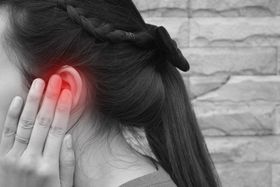What Are the Different Stages of Sleep Deprivation?
Sleep deprivation can lead to mild to serious health conditions if it continues over time. Learn about its different stages and various symptoms.
Published May 9, 2023.
Getting enough sleep is important for for both psychological and physical health. In fact, sleep deprivation is a commonly used torture and interrogation technique precisely because of how negatively it can impact a person's overall well-being, clear thinking, and their ability to make good judgments.
Simply put, sleep deprivation happens when a person doesn't get enough sleep over a long period of time. It's generally divided into five stages, each with its own set of symptoms and mild to severe health impacts.
» Struggling with sleep? Here's how to improve your sleep quality
Stage 1: Mild Sleep Deprivation (24 Hours)
The first signs of sleep deprivation can occur after 24 hours of no sleep. This is the most common stage, as many of us 'pull an all-nighter' here and there. The symptoms you may experience after 24 hours are generally mild, and they include:
- Decreased concentration
- Mild irritability or anger
- Increased appetite or food cravings
- Slower response times
Stage 2: Growing Sleep Deprivation (36 Hours)
After 36 hours without sleep, the sleep deprivation grows in intensity, including symptoms such as:
- Increased irritability and anger
- Heightened appetite
- Reduced hand-eye coordination
- Nausea
- Increased inflammatory markers in the bloodstream (which can lead to heart disease and high blood pressure)
Stage 3: Moderate Sleep Deprivation (48 Hours)
Once you go 48 hours without sleep, your health can be seriously impacted. At this point, you have to address your sleep needs to avoid the following symptoms:
- Vastly increased irritability or anger
- Decreased ability to make decisions
- Depersonalisation (your thoughts and feelings seeming like they're not your own)
Stage 4: Serious Sleep Deprivation (72 Hours)
After 72 hours with no sleep, the health risks you may face become more serious. The symptoms you can expect at this stage include:
- Hallucinations
- Microsleep (short periods of sleep you may be unaware of, posing danger)
- Disordered thinking (not knowing what's real and experiencing delusions)
Stage 5: Severe Sleep Deprivation (96 hours)
When 96 hours pass without sleep, the risks are extreme and the outcomes can be dangerous. At this stage, many people experience:
- Severe sleep deprivation headaches
- Muscle pain and cramping
- Cognitive impairment (including problems with concentration, memory, decision-making, and hallucinations)
- Paranoia (which can make you unwilling to get help and lead to dangerous decisions)
» Wondering how severe sleep deprivation can get? Learn if it can cause death
Related Posts
Dr Lori Beth Bisbey
Sleepless Nights: Can You Function on 3 Hours of Sleep a Night?
Joel Taylor
Can You Die From Sleep Deprivation?
Dr Lori Beth Bisbey
From Restless to Restful: Effective Parasomnia Therapies
Dr Lori Beth Bisbey







